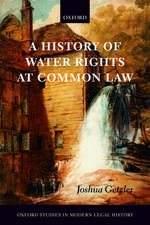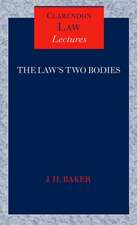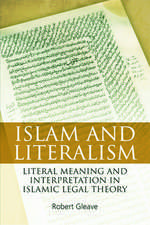The Interest Approach to Choice of Law: With Special Reference to Tort Problems
Autor Amos Shapiraen Limba Engleză Paperback –
Preț: 390.08 lei
Nou
Puncte Express: 585
Preț estimativ în valută:
74.64€ • 79.82$ • 62.23£
74.64€ • 79.82$ • 62.23£
Carte tipărită la comandă
Livrare economică 17 aprilie-01 mai
Preluare comenzi: 021 569.72.76
Specificații
ISBN-13: 9789401700191
ISBN-10: 9401700192
Pagini: 288
Ilustrații: XIII, 273 p.
Dimensiuni: 170 x 244 x 15 mm
Greutate: 0.46 kg
Ediția:1970
Editura: SPRINGER NETHERLANDS
Colecția Springer
Locul publicării:Dordrecht, Netherlands
ISBN-10: 9401700192
Pagini: 288
Ilustrații: XIII, 273 p.
Dimensiuni: 170 x 244 x 15 mm
Greutate: 0.46 kg
Ediția:1970
Editura: SPRINGER NETHERLANDS
Colecția Springer
Locul publicării:Dordrecht, Netherlands
Public țintă
ResearchCuprins
I. The Traditional Approach to Choice of Law.- A. The General Theory.- B. The Gap between Judicial Doing and Reasoning — “Escape Devices”.- C. Critical Evaluation of the Traditional Approach.- D. The Traditional Tort Choice-of-Law Rules.- II. Three Preliminary Clarifications: Transnational Versus Interstate Conflicts, the Lex Fori Threshold and Foreign Law as Factual Datum.- A. Transnational Versus Interstate Conflicts.- B. The Lex Fori Threshold.- C. Foreign Law as Factual Datum.- III. The Concept of Public and Private Interests in the Choice-of-Law — Process — Perspectives and Values.- A. The Concept of Public Interests.- B. The Concept of Private Interests.- C. An Interest-based Approach — The Values of Judicial Creativity, Concretization and Rationality, “Domestication” of the Choice Process and Functionalism in lieu of Territorialism.- IV. Public Interests Peculiar to Conflicts Contexts: Transnational Concerns.- A. The Concept of Transnational Concerns.- B. Transnational Concerns in Reciprocal Accommodation of Public Interests and Uniform Treatment of Distinctive Problem-Areas.- V. The Process of Interest Analysis-Ascertainment of Relevant Interests.- A. Ordinary and Peculiar Aspects of the Interpretive Function.- B. Factors and Guidelines in the Ascertainment of Relevant Interests.- C. Practical Complexities in the Ascertainment of Relevant Interests.- VI. The Process of Interest Analysis-Elimination and Resolution of Conflicts of Interests.- A. Elimination of Apparent-but-not-real Conflicts of Interests.- B. Resolution of True Conflicts of Interests.- C. Recourse to the Lex Fori as a Last Resort in Conflicts Adjudication.- VII. The Prospects of Standardization in the Process of Interest Analysis.- A. New Choice-of-Law Standards — Fancies andFacts.- B. Avenues of Standardization: Accumulation of Interest-Analyses Data, Judicial and Legislative Scope-Delimitation of Legal Prescriptions, and International Legislation in Distinctive Problem-Areas.- Appendix. An Exercise in Interest Analysis.- Selected Bibliography.- General Index.















